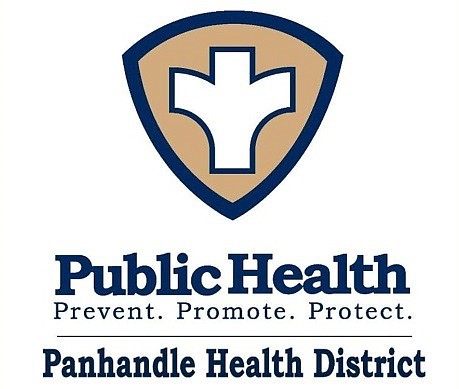Managing fear and stress amid COVID-19
Andrea Nagel | Hagadone News Network | UPDATED 5 years, 8 months AGO
We are living in uncertain times. With neighbors stockpiling supplies and a constant stream of discussion surrounding COVID-19, it’s understandable we may all feel a bit overwhelmed by the unknown of what will happen next. The emotional impact of COVID-19 may cause stress, fear, or anxiety, and these strong emotions can be difficult to process.
“Social distancing does not need to equal social isolation,” Don Robinson, manager of the Northern Idaho Crisis Center, said. “It’s important for us to feel connected to each other and our community despite having to physically distant ourselves.”
People asked to stay home due to illness, exposure, or active community spread of COVID-19 are experiencing a major shift in routine. According to the American Psychological Association (APA), common sources of stress during this period include a drop in meaningful activities, sensory stimuli and social engagement; financial strain from being unable to work; and a lack of access to typical coping strategies such as going to the gym or attending religious services.
“We’re going through these major shifts in lifestyle right now,” said Claudia Miewald, DNP, director of Kootenai Health’s Behavioral Health Services. “It’s important for us to feel like we’re all in this together and establish a new routine to help us get through this with some feeling of normalcy.”
While we all react differently in times of stress, the CDC states there are some populations that may respond more strongly to the stress of a crisis, including:
•Older people and people with chronic diseases who are at higher risk for COVID-19
•Children and teens
•People who are helping with the response to COVID-19, like doctors and other health care providers, or first responders
•People who have mental health conditions including problems with substance use
“We’re still in the buzz of preparation in our community, but it’s important for all of us to build the mindset around the long-term recovery and disruption this will have,” Robinson said.
Because our community is still in the early stages of the epidemic, there are things we can do to prepare ourselves and our families for the mental health effects.
“When staying home for long periods of time it is important to establish routines with your family, children, or even in your own day. Pick a time to read, do schoolwork, or just watch a funny movie together as a family each day,” Miewald said. “This is a good time to do those home projects like organizing the garage or closet, doing things that will give you a sense of accomplishment. Staying connected is also important. Use technology like the Nextdoor app to check on your neighbors, video chat with family, or have the kids send letters or drawings to grandma and grandpa to stay connected. I also suggest taking time each day to practice gratitude and actively seek out the good things you have in your life to keep perspective.”
To help stay positive and make it through the weeks to come, experts from the APA and CDC suggest:
•Limit exposure to news coverage — pick a couple reliable sources for news and limit your consumption to just those. Do not use social media as a news source.
•Follow a daily routine — maintaining a daily routine can help both adults and children preserve a sense of order and purpose in their lives. Include regular daily activities such as work, exercise, learning, or other favorite hobbies or pastimes.
•Stay virtually connected — face-to-face interactions may be limited, but psychologists suggest using phone calls, text messages, video chat and social media to access social support networks.
•Take care of your body — do activities like yoga or meditation. Try to eat healthy, well-balanced meals, exercise regularly, get plenty of sleep, and avoid alcohol and drugs.
•Get help when you need it — practicing social distancing or being quarantined doesn’t mean help is unavailable to you. Seek out assistance if you’re struggling with feelings of despair, anxiety, or intense sadness.
“We don’t want people to stay away because they’re afraid of getting sick, or exposing others,” Miewald. “We want everyone who needs help to be seen.”
If you’re experiencing symptoms of extreme stress, such as ongoing trouble sleeping, inability to carry out daily routines, or an increase in alcohol or drug use, seek help from a health care provider. If you’re struggling to find help, here are a few resources:
Northern Idaho Crisis Center - 208-625-4884
Heritage Health - 208-620-5210
Idaho Suicide Prevention Hotline (call or text) - 1-208-398-4357
You can also visit northidahoconnections.org to search for other community resources.
ARTICLES BY ANDREA NAGEL

State reopening continues into Stage 2
Yesterday Gov. Brad Little announced Idaho will move into Stage 2 of his reopening plan. In his announcement, he encouraged residents and businesses to move forward safely and continue to adhere to social distancing and sanitation guidelines.

Catch up on preventive care
During the early days of the COVID-19 pandemic, many people decided to delay non-emergent health care appointments until the stay-home orders began to lift. For you and your family, that may have meant avoiding some routine doctor’s visits. But now that restrictions are easing up, it’s time to catch up on any preventive health services you missed.

What we’ve learned from COVID-19
Now that we’re starting to reopen local businesses and are looking forward to gathering in small groups again, you may be eager to get back to the life you were living before COVID-19. But before you do, take a moment to reflect. While many of us have experienced losses or sacrificed privileges by staying home, there may also be some good things we’ve gained over the past months. What new habits or insights can you take with you as you move forward?



